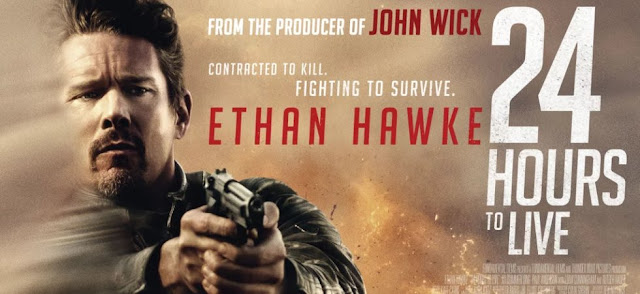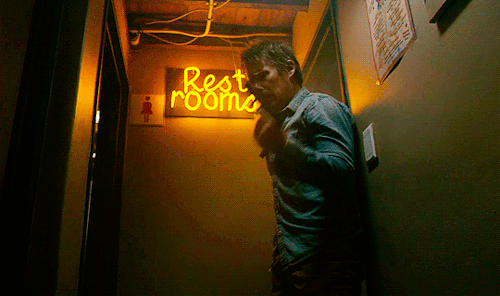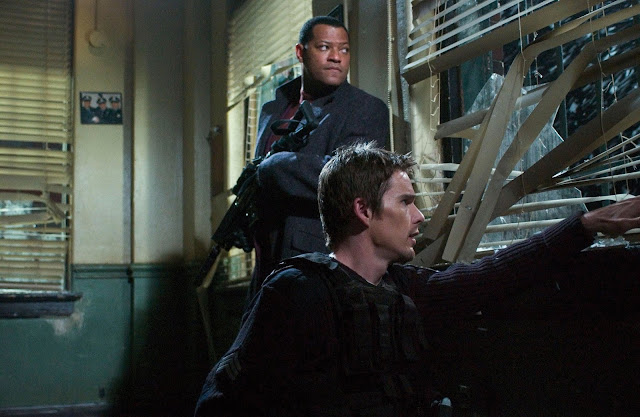
The unexpected success of action flicks like Taken and John Wick directly inspired a host of vigilante imitators, all which saw an engaging lead (or once engaging…cough cough John Travolta) taking on hordes of anonymous henchmen with slick style while committing lots of violence. Sean Penn’s The Gunman, Kevin Costner’s 3 Days to Kill, Pierce Brosnan’s The November Man, Travolta’s I Am Wrath, and pretty much every action movie Liam Neeson did post-Taken — not a single one of these was any good. So when Ethan Hawke’s 24 Hours to Live was released, quietly, it seemed like yet another tired John Wick clone, and Hawke’s spotty mainstream action/thriller record wasn’t an advantage. (Getaway is one of the worst movies you’ve never seen.)
Happily, and surprisingly, 24 Hour to Live is pretty fun, showcasing a seldom seen bad-ass Hawke as Travis Conrad, a retired shadowy government agent pulled out of retirement for one last yadda yadda. As you can see, there’s really nothing that makes 24 Hours to Live unique or innovative beyond the time-tabled life thing (although this had been done previously in Crank). Otherwise, you’ve definitely seen this sort of thing before, with the same kind of character machinations and motivations: Conrad lost his wife and son a year prior, so he’s a heavy-drinking cynical mess. Again, this character trope is absolutely nothing new to the genre. Hawke was barely a pre-pube member of the Dead Poets Society when Martin Riggs was garbage-firing it up in his trailer with a loaded gun in his mouth. But, as I’ve said time and time again, I’m totally fine with seeing the same concepts being re-explored, in any genre, so long as it’s executed with a little showmanship, enthusiasm, and sense of excitement.
24 Hour to Live offers all three.


Much of this comes from director Brian Smrz, who, like John Wick’s directors David Leitch and Chad Stahelski, got his start as a stunt coordinator on big silly action films. Though he gets a little overwrought during the “be sad/dead family” montages, the action sequences work very well and are confidently executed, and for this kind of movie, that’s all that really matters. And the violence — hoooo, boy! Thank you!
Not everything in 24 Hours to Live is a success, whether it’s the hamfisted dialogue, the occasional plot hole, or the severe under-usage of Rutger Hauer (he deserved his own official “Frank” spin-off), but enough of it works that it makes for one of the better quiet Lionsgate action flicks that the studio seems to dump every month. Don’t let this one get lost in the spate of other LGF action releases that showcase a tired Bruce Willis or a bizarre Steven Seagal. 24 Hours to Live won’t reinvent the wheel, but it’s still a fun ride, and will temporarily satiate the action junkie patiently waiting for John Wick: Chapter 4.









